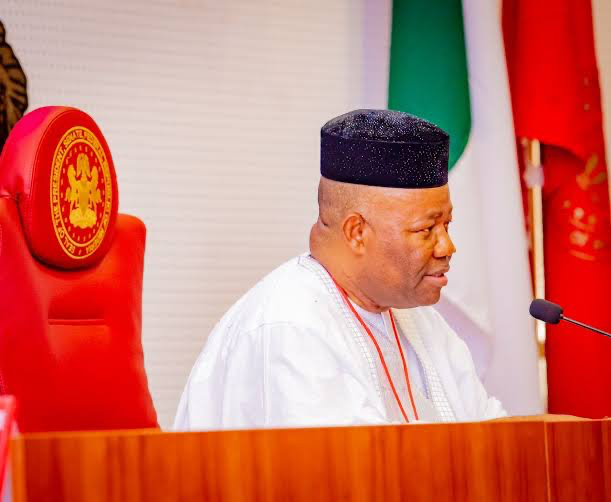A bill seeking to establish a Local Government Independent Electoral Commission has passed its first reading at the Senate.
The bill was passed Thursday during the plenary after the Senate Leader, Opeyemi Bamidele, introduced it.
It was sponsored by Sani Musa (APC, Niger East).
It seeks to establish a National Independent Local Government Electoral Commission (NILGEC) responsible for conducting elections to the office of the local government chairman and councillors and any other matter thereof to do with local government as a third tier of government.
Last week, the Supreme Court affirmed the financial autonomy of Nigeria’s 774 local governments.
The Deputy Senate President, Barau Jibrin, recentlyalleged that some state governors divert local government allocation to personal use.
Currently, all 36 states have independent election commissions which organise local government elections in the states.
However, elections for the area councils in the Federal Capital Territory (FCT) are conducted by the Independent National Electoral Commission(INEC).
If the bill is passed, the state independent electoral commissions (SIEC) will be replaced by NILGEC.
Content of the bill
Establishment of NILGEC
According to the bill, the NILGEC will be an autonomous body to organise, oversee, and conduct elections for the offices of local government chairman and councillors in all 36 states and the FCT.
Functions and Powers
– To conduct free, fair, and transparent elections for Local Government Chairman and Councillors.
– To prepare and maintain an accurate and up-to-date voter register.
– To ensure voter education and public awareness regarding the electoral process.
– To set and enforce electoral guidelines and regulations for Local Government elections.
– To recruit and train electoral officers and staff for efficient election management.
– To monitor and supervise all electoral activities and processes.
– To investigate and adjudicate electoral disputes and grievances.
Composition of NILGEC
The bill says NILGEC shall consist of a chairperson and six commissioners, appointed by the president and confirmed by the Senate.
The chairperson and commissioners shall serve for five years, renewable once.
Independence and Autonomy
NILGEC shall operate independently, free from external influence and interference.
The commission shall have its own budget, approved by the National Assembly, to ensure financial independence.
Electoral Process and Procedures
NILGEC shall develop and implement procedures for voter registration, candidate nomination, and the conduct of elections.
The commission shall ensure the provision of necessary electoral materials and logistics for the smooth conduct of elections.
Election Timeline
NILGEC shall announce the election schedule at least six months before the date of the election.
Elections for the offices of local government chairman and councillors shall be conducted every four years.
Electoral Offences and Penalties
NILGEC shall define and enforce penalties for electoral offences, including but not limited to voter fraud, ballot stuffing, and electoral violence.
Offenders shall be prosecuted and punished in accordance with the laws of the land.
Collaboration with Other Agencies
NILGEC shall collaborate with other relevant government agencies, security forces, and civil society organisations to ensure a secure and credible electoral process.
Transitional Provisions
Upon the establishment of NILGEC, all powers and functions related to the conduct of Local Government elections previously vested in any other body or authority shall be transferred to NILGEC.

































